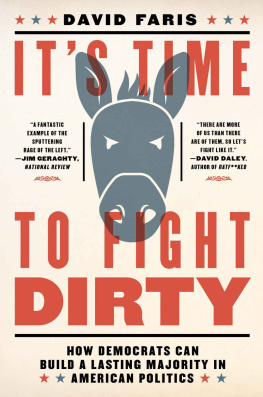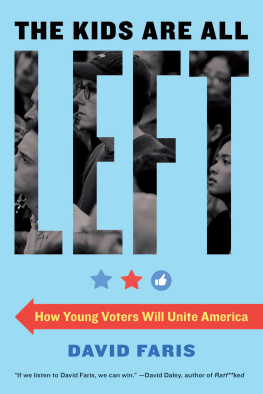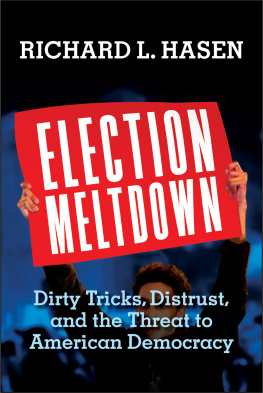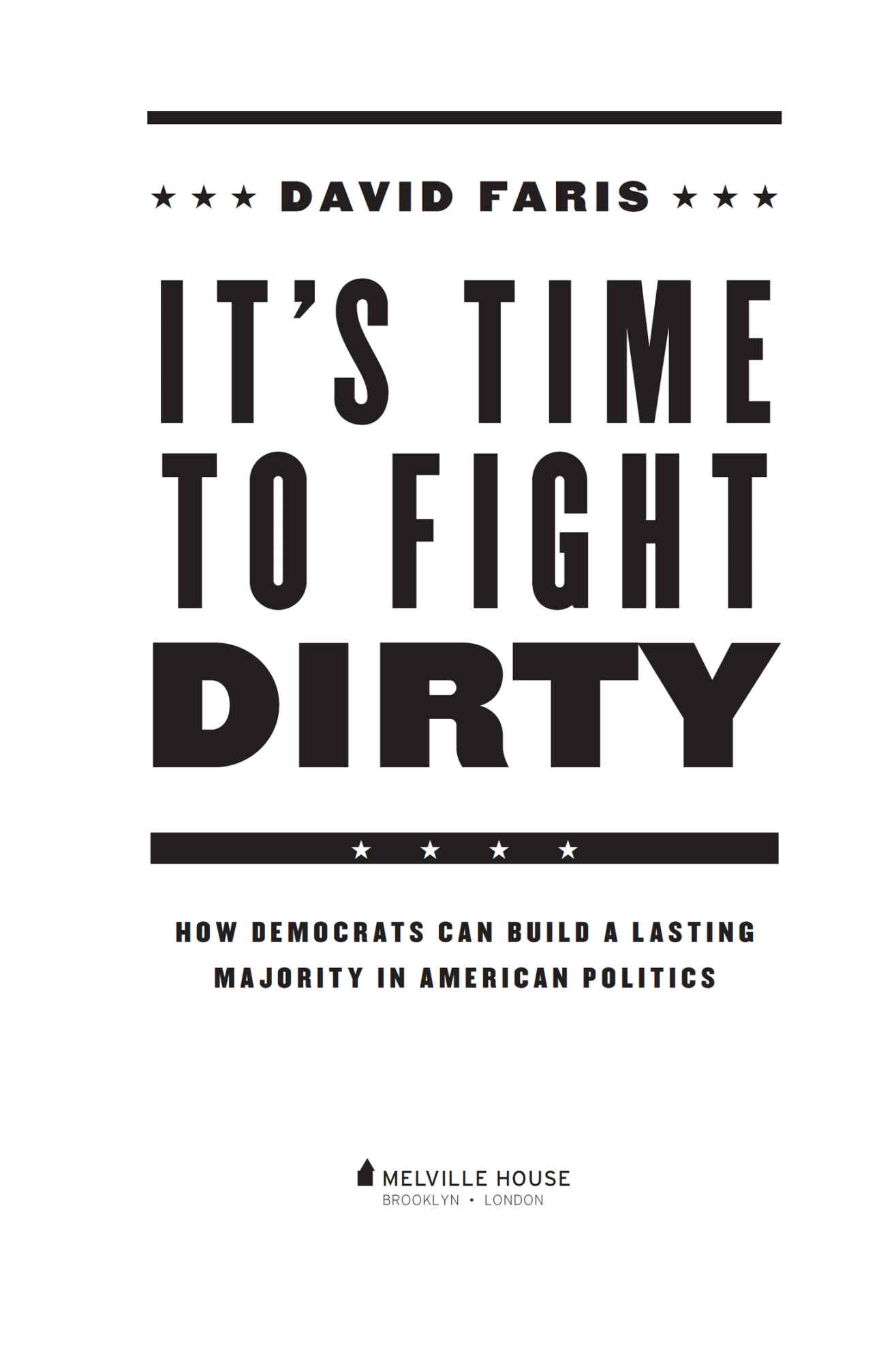Introduction
Since the shocking election of Donald Trump as the forty-fifth president of the United States, a lively and at times acrimonious debate has raged in the big tent of the American left. On one side are those who believe the Democratic Party should make a play for Trump voters by emphasizing progressive policy issues that appeal to the white working classtrade agreements, job retraining programs, universal healthcare, a basic income, and more.
In Its Time To Fight Dirty, I argue that all of the participants in this intra-left kerfuffle are failing to take the structural barriers to progressive power in this country seriously enough. Democrats will not build lasting power by landing on the right health care policy, or concocting the zingiest slogan, or targeting their last few million dollars in GOTV to this or that county in North Carolina. In fact, focusing only on policy or messaging or outreach would be a catastrophic mistake that will eventually land the party right back in the same position it is in now. It makes the error of believing that American politics is all about, or even mostly about, policy differences between the contenders for public office. But you cannot win, in the long term, a policy or messaging fight on a playing field that is tilted hopelessly against you. You can sometimes come out on top in a football game in which you spot your opponents two touchdowns before the game begins, but, and this is critical, you will lose more often than you win. If Democrats and progressives decide to duel to the death, particularly while they are in the minority, over whether the federal minimum wage should be $13 or $15, they will do so from the political sidelines, as their adversaries in the GOP continued to use a rigged political system to exclude them from the conversation altogether.
The unfortunate truth is that voters are rarely able to make the link between the party in power and policies that benefit (or disadvantage) them. This means that even though millions of Americans may benefit from, for instance, the Affordable Care Act, they dont necessarily credit Democrats for their gains. As political scientists Daniel Galvin and Chloe Thurston argue, It is difficult for constituencies to form, for example, when policies lack visibility or traceability to the government.
Democrats didnt lose a policy fight in 2016. What they did was finish losing a procedural war that has been going on since the early 1990s. Indeed, the election of Donald Trump as the forty-fifth president of the United States was such an incomprehensible development that it obscured a very simple underlying reality: that the pathological liar and delusional narcissist currently residing half-time at the White House actually lost the presidential election by several million votes and took office because of the nonsensical, undemocratic Electoral College; that Democrats scored 11 million more votes for the U.S. Senate than Republicans only to wake up staring at a 5248 deficit; that the national House vote was nearly even but delivered Republicans yet another overwhelming majority; that of the 230 million voting-eligible citizens of the United States, fewer than 139 million even bothered to turn out; that millions of Americans were shamefully deprived of their franchise by racist voter-ID laws and the cruel way that many states prevent current or former felons from voting; and that the United States is the only country in the entire world that holds its critical national elections on a regular working Tuesday as if we literally couldnt care less who is able take off work to cast a ballot.
The bizarre quirks and preindustrial design features of the American constitutional system are in fact a five-star Epicurious recipe for how a radical minority of voters can capture and hold power in a democracy. These oddities almost exclusively favor the current voting coalition of the Republican Party, and GOP elites have ingeniously rolled out a long series of laws and court decisions to press their advantagefrom the Citizens United atrocity that declared money is speech, to depraved voter ID laws that obviously target people who are likely to vote Democraticall dressed up in Orwellian pabulum about free speech and the need to prevent voting fraud. Since the end of the Cold War, the Gingrich radicals that took over the party in the early 1990s have been waging a relentless, brutal, and completely one-sided war against the Democrats, systematically using their lawmaking power to disadvantage their adversaries in elections and political mobilization. As E. J. Dionne argues, these aggressive, norm-violating procedural moves were the hallmark of a party determined to use the power it had to lock in its advantages for the future. One has to grudgingly respect the single-mindedness with which the GOP has pursued its advantage in the electoral arena, even as we condemn the morally bankrupt disenfranchisement of voters and the ugly circus they have brought to Congress. Democrats would be wise to learn from their adversaries, even as they cling to a set of minimal behavioral standards.
That one-sided warfare, and the preposterous handicaps Democrats are forced to compete with, led directly to the election of Donald Trump. And on January 20, 2017, we began dealing with the consequences: When President Trump was inaugurated, he launched a gratuitous, mean-spirited, and corrupt assault on the governing norms of Washington, D.C. and the patterns and expectations of the American political system. Toting with him into office an unstable entourage of D-list hacks, cartoonish weirdos, and dead-eyed ideologues, Donald Trump arrived in D.C. to deliver an apocalyptic, angry inaugural speech that sounded like Ernest Hemingways suicide note as interpreted by 4chan. In short, repetitive, declarative sentences, Trump proclaimed the end of this American carnage and promised that from now on it will be America first, only America first.
After the speech, former President George W. Bushno intellectual titan himselfreportedly remarked, That was some weird shit. The claim was belied by the evidence sitting right next to him on the podium and by a million first-hand pictures and videos and reports floating around the Internet, all of which showed a relatively sparsely attended inaugural. Those members of the press corps observing the spectacle got that feeling of listening to a wedding speaker slowly melt down, the guests glancing furtively at each other, mouthing Is this really happening?
To make matters worse, the political organization that folded for Trump and followed him gleefully into total power had completed a decades-long journey to the extreme right of the American political spectrum. The marauding Republican Party that rolled victoriously into D.C. in January 2017 had lost all sense of public spirit and graciousness and lacked utterly any reason for existing other than the relentless pursuit and maintenance of political power for the express purpose of redistributing wealth from the poor and the middle classes to the wealthy. In the first year of Trumps misrule, the GOP abdicated critical oversight functions and made excuse after excuse for the barely literate reality TV star in the Oval Office because they realized that they had a once-in-a-lifetime opportunity to reshape American public policy and deliver on the lurid and generally unpopular promises they have been making their voters for years, not just to repeal Obamacare but to dramatically roll back the scope of the federal government, gut the progressive tax code by drastically lowering rates for corporations and top earners, crush the remaining and embattled pockets of organized labor, obliterate environmental regulations while reanimating the zombie coal industry, and appoint constitutional fanatics to the United States Supreme Court. Most of these positions are profoundly unpopular. GOP elites know that they have a president elected with 46 percent of the vote, that they lost seats in both the House and Senate in 2016, and that long-term demographic trends do not work in their favor unless they can continually increase their share of the white vote. Many saw in Donald Trump a vehicle for a last-ditch effort to dismantle what hard-core conservatives refer to derisively as the administrative statethe network of federal and state civilian agencies that manage the many complexities of modernity so that all citizens have the opportunity to live a decent life amid the ravages of capitalism. This is why one writer and former George W. Bush apparatchik (who would, of course, be appointed to a position in the Trump Administration) described 2016 as the Flight 93 election: charge the cockpit or you die.









